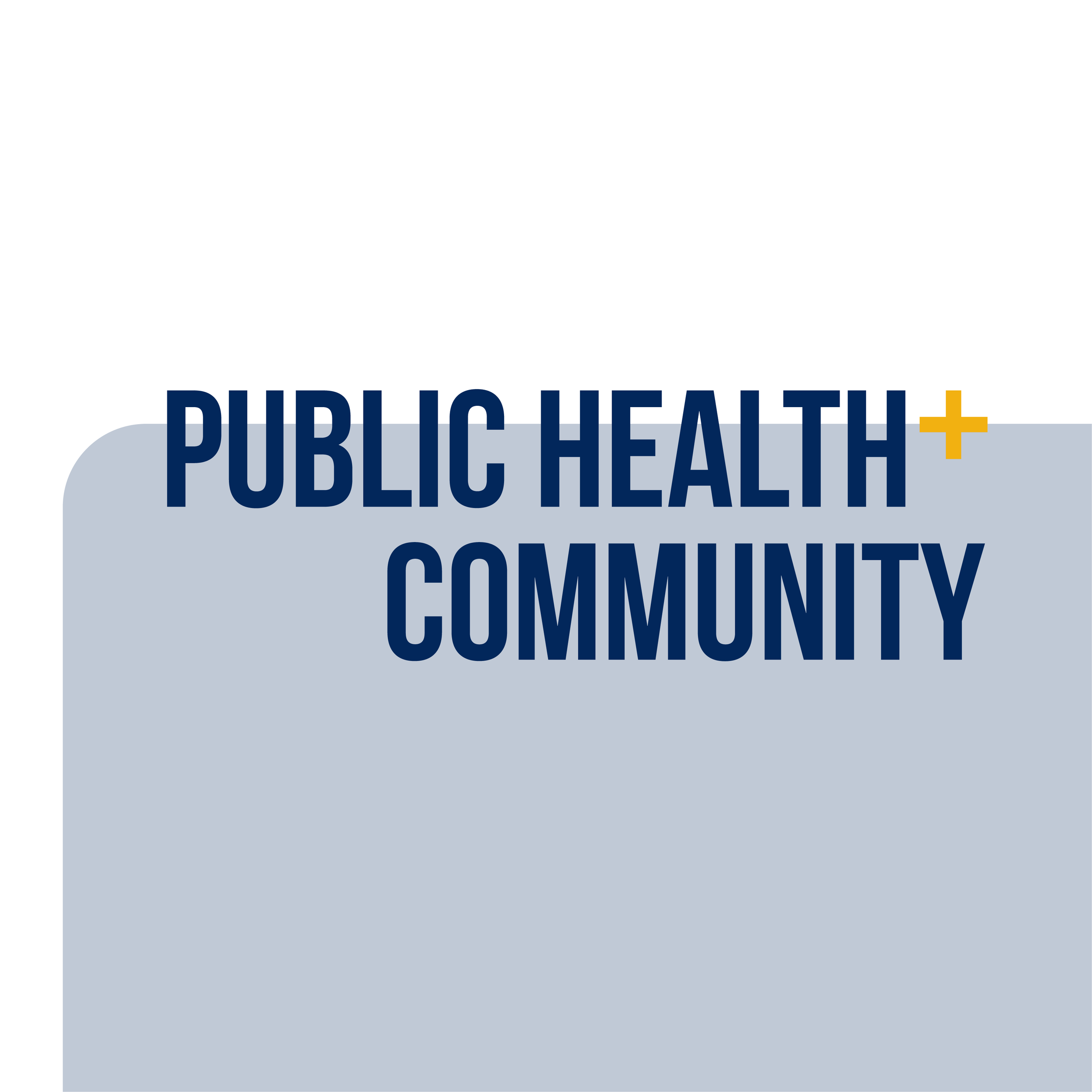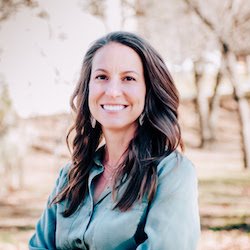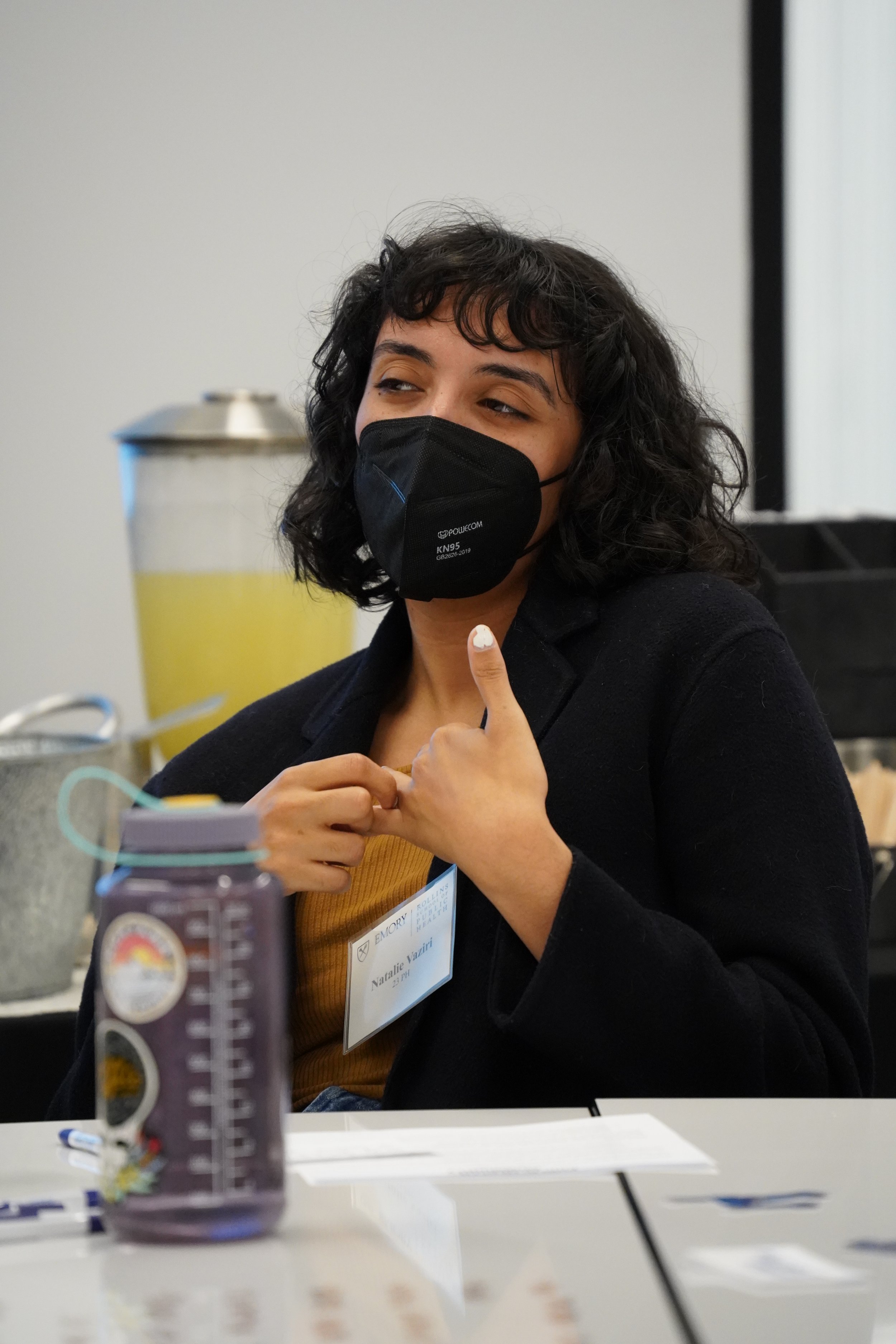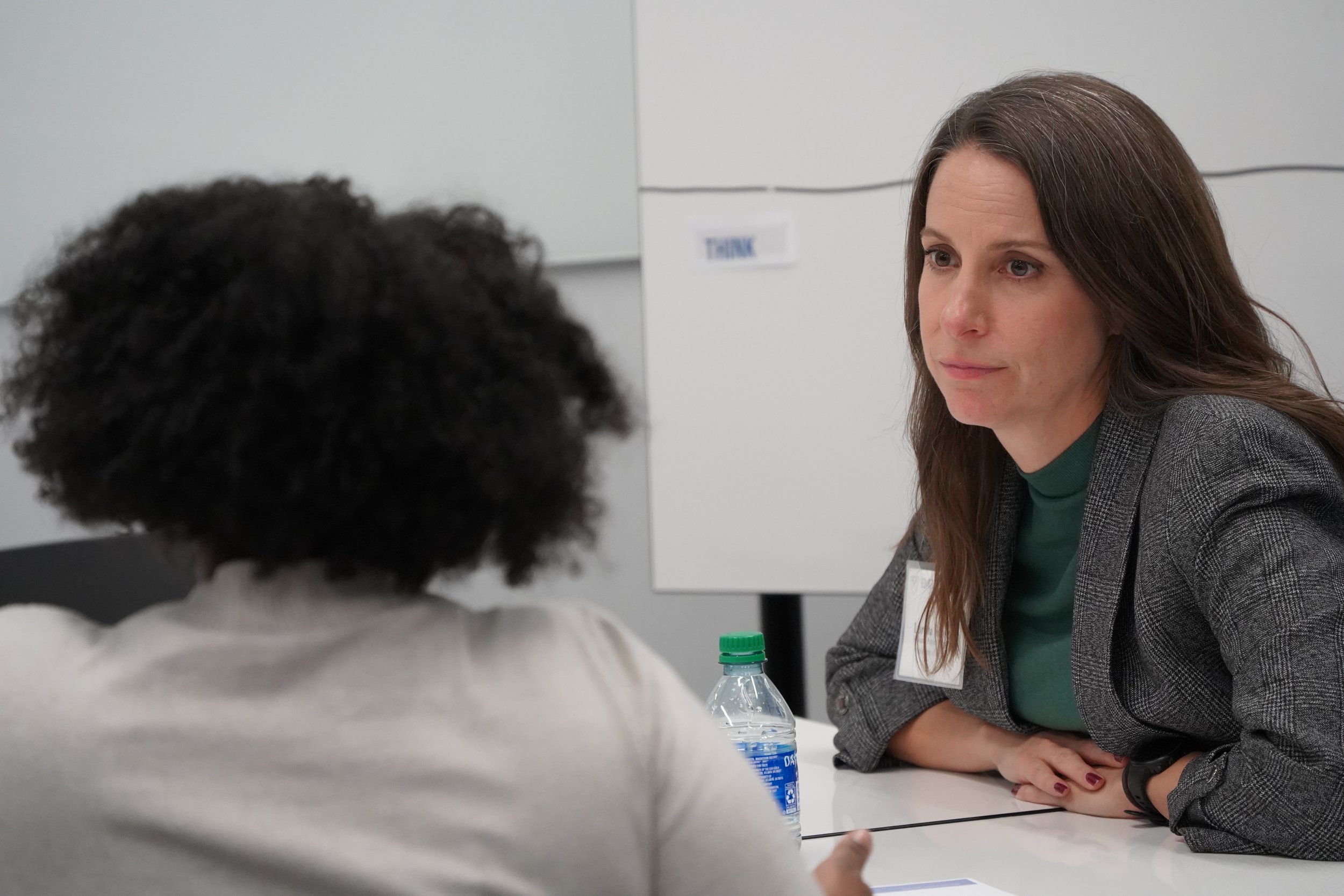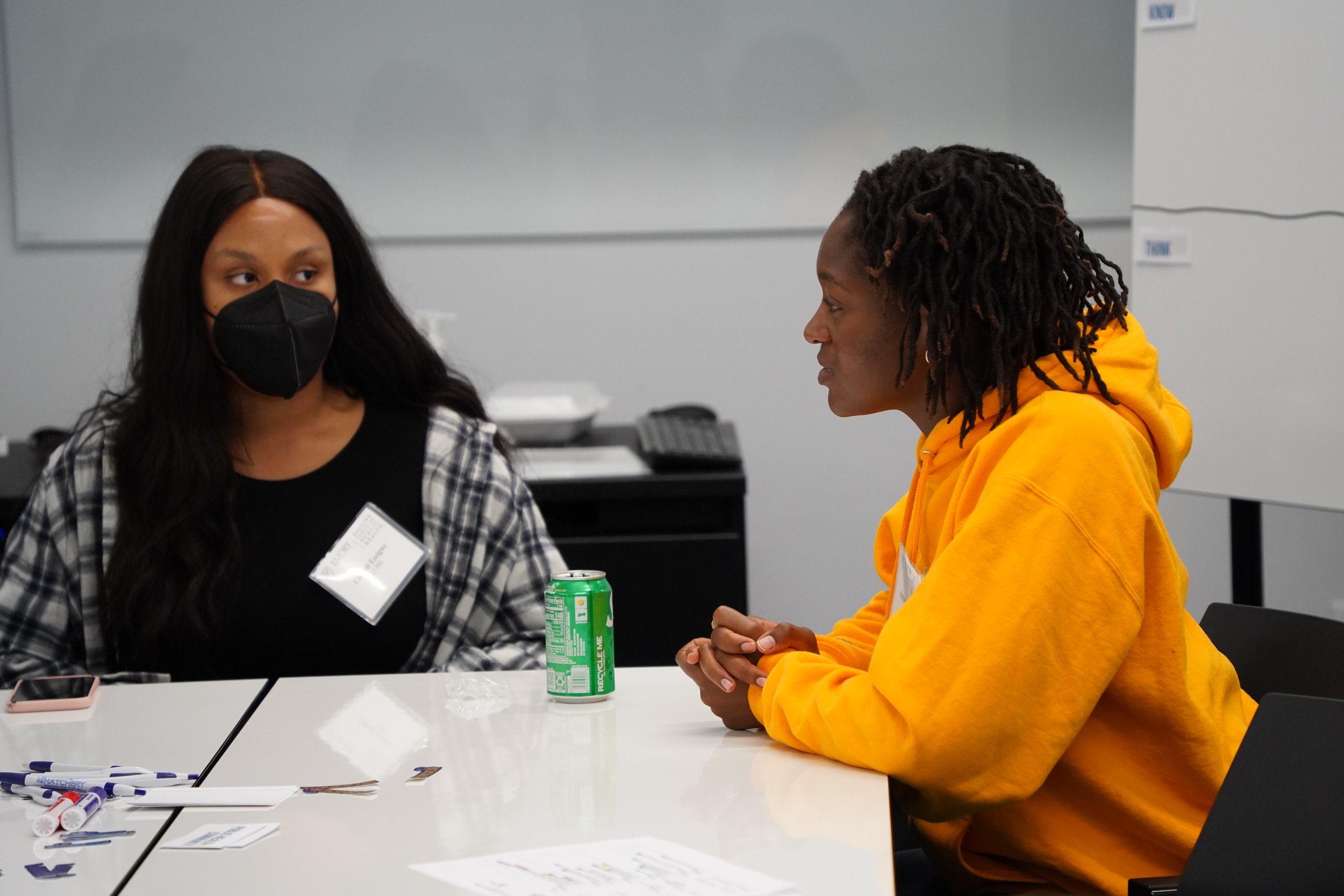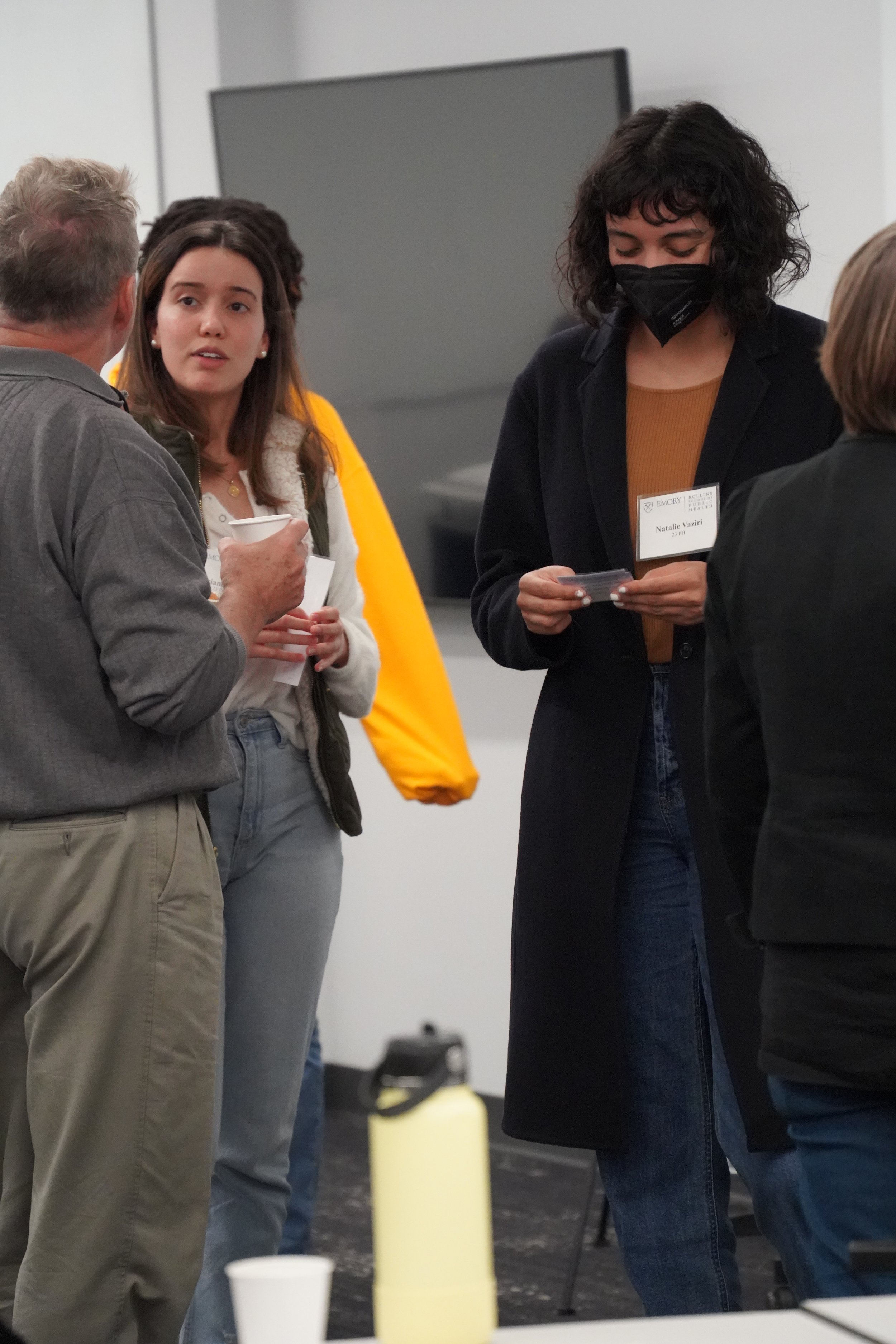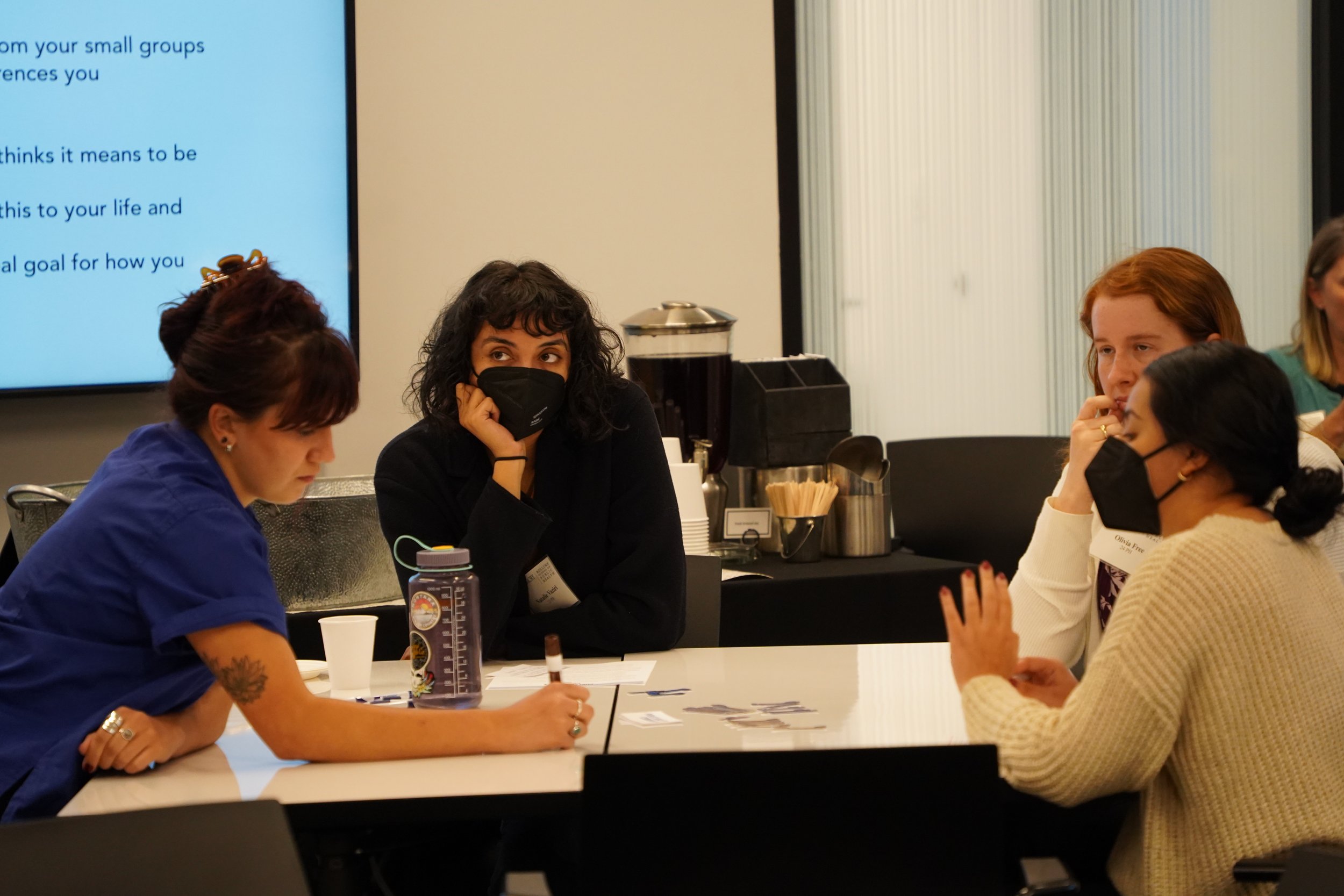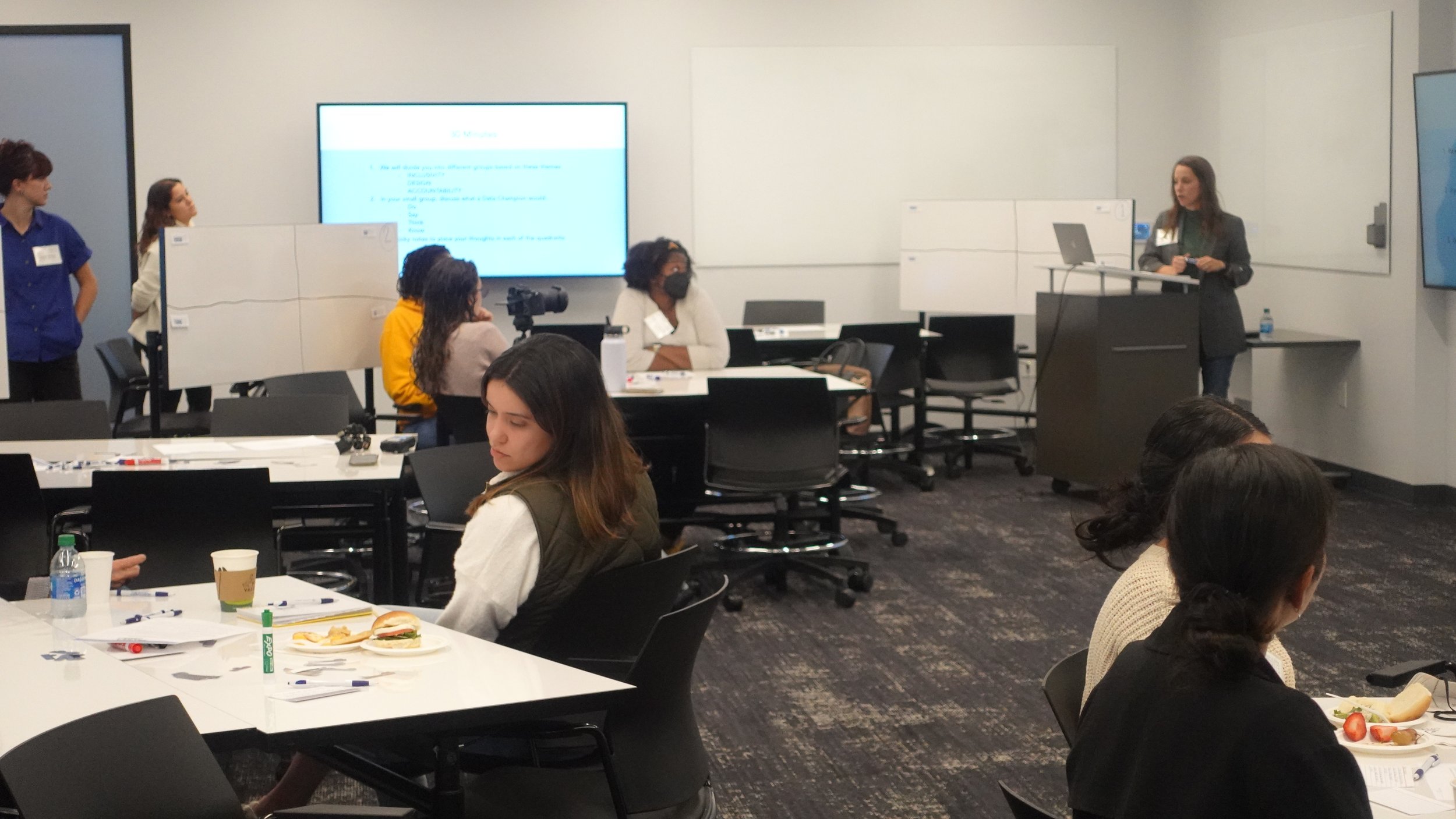The fall installment of season 3 of Public Health+ features a focus on partnering with communities to use data to activate change. This series consisted of two offerings - an in-person workshop that centered around co-creating best practices of data champions and a follow-up panel discussion where our panelists discussed how they collect data in a way that promotes partnership, respect, and collaboration.
speakers
Workshop: “Cultivating data champions”
The “Cultivating Data Champions” workshop was a highly interactive and engaging session led by Loretta Severin of the Center for Public Partnerships & Research (CPPR) and their IRIS team. Participants consisted of both Rollins students and public health professionals. Loretta shared her experiences working with CPPR and the IRIS network, and how data plays a part in her work. During this session, participants defined what it means to be a data champion and developed a personal goal for how to be a data champion in their work. Workshop participants co-created best practices of data champions, with important themes being the importance of transparency, cultural humility, and being intentional.
webinar
A panel discussion followed the workshop, and features Natasha DeJarnett, PhD, MPH, an Assistant Professor in the Christina Lee Brown Envirome Institute at the University of Louisville Division of Environmental Medicine, and Teri Garstka, PhD, Associate Director of the Center for Public Partnerships & Research. During this discussion, DeJarnett and Garstka discuss the ways they work with communities that promote partnership, respect, and collaboration. They explain why community engagement is so important and how to collect and use data while keeping communities at the center of the work.
Action
We encourage all to use principles here to increase the impact and value of your work with communities. Download the best practices document co-created by workshop participants for actionable ideas, as well as make your own data champion pledge card to affirm your intention to center communities in your use of data.

